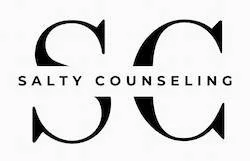EMDR vs. Talk Therapy: Which Is Right for You?
When you’re considering therapy, it can be overwhelming to decide which approach is the best fit. Two of the most common — and effective — options are talk therapy and Eye Movement Desensitization and Reprocessing (EMDR). Both can help with trauma, anxiety, and life stressors, but they work in very different ways.
If you’re searching for therapy in Salt Lake City, here’s a clear breakdown of how EMDR and talk therapy compare — and how to know which might be right for you.
What Is Talk Therapy?
Talk therapy (sometimes called “traditional therapy” or “psychotherapy”) focuses on exploring your thoughts, feelings, and behaviors in a safe and supportive space.
How it works: You share experiences with your therapist, who helps you process emotions, identify patterns, and develop coping skills.
Best for: Individuals new to therapy who seek insight into their story, validation, and practical skills to navigate daily challenges.
Benefits: Builds self-awareness, improves communication, and helps manage stress, anxiety, and depression.
Many Salt Lake City therapists offer talk therapy as their primary method — and for good reason. It’s versatile, evidence-based, and helpful for a wide range of concerns.
What Is EMDR Therapy?
EMDR therapy is a structured approach that helps your brain reprocess traumatic or distressing experiences — whether that’s a memory, a physical sensation, or a current trigger. Instead of only talking about the past, EMDR engages both sides of the brain through eye movements or other forms of bilateral stimulation. This process helps reduce the intensity of overwhelming symptoms, allowing your nervous system to heal in a more balanced way.
How it works: While recalling a difficult memory or target, your therapist guides you through eye movements, tapping, or sounds, a technique known as bilateral stimulation. This helps your brain “unstick” from survival responses and reprocess the memory in a healthier way.
Best for: Trauma, PTSD, CPTSD, anxiety, stress, phobias, and experiences that feel “stuck” even after years of talking about them.
Benefits: Often works faster than traditional talk therapy, decreases the emotional charge of traumatic memories, and promotes nervous system healing.
Many of my clients in Salt Lake City choose EMDR after years of talk therapy, especially when they feel they’ve “hit a wall” and want a deeper level of healing. Key Differences Between EMDR and Talk Therapy
Talk Therapy
Insight-focused
Explores patterns and relationships
Weekly sessions, long-term exploration
Best for general support, anxiety, and depression
EMDR Therapy
Memory and target reprocessing-focused
Targets trauma and the root of the issue directly
Often fewer sessions, goal-oriented
Best for trauma, PTSD, current triggers, stuck memories, and distressing physical sensations
Which Is Right for You?
Choosing between EMDR and talk therapy depends on your goals and your history.
If you’re navigating general stress, relationship struggles, or want to build ongoing coping skills, talk therapy is a great fit.
If you’ve tried talking and still feel stuck in the same patterns — especially with trauma or past experiences — EMDR may offer the breakthrough you’re looking for.
Many people find combining the two most effective: using talk therapy for support and EMDR for targeted healing. This is something we offer at Salty Counseling, so you don’t have to choose one or the other — we can integrate both approaches based on your needs.
Finding Support in Salt Lake City
At Salty Counseling, I specialize in both EMDR and trauma-informed talk therapy. My goal is to help high-achieving professionals and women in Salt Lake City move beyond just coping — and finally heal at the root.
If you’re curious about whether EMDR or talk therapy is right for you, the best next step is to talk with a therapist who offers both. At Salty Counseling, we’ll work together to explore your goals and create a personalized plan that meets your specific needs.
👉 Book a free 20-minute consultation to learn which approach may be right for you.

